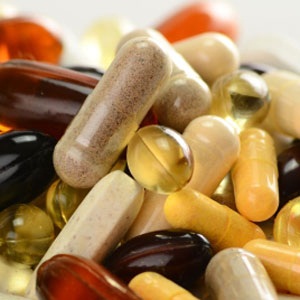
The New Scientist article was written by Dr Lisa Melton from the London-based registered charity, the Novartis Foundation, and investigated the apparent disagreement between the vast body of epidemiological studies and randomised clinical trials (RCTs) for the prevention of diseases by antioxidants
While the epidemiological evidence linking dietary antioxidant intake and reduce incidence of risks of a range of disease is strong, when such antioxidants have been extracted, purified, or synthesised and put into supplements, the results, according to the randomised clinical trials (RCTs), do not produce the same benefits, and may even be harmful.
NutraIngredients invited comment from readers, and the responses were a mixed bag, with many feeling that the role of antioxidants is not myth, merely misunderstood.
Drug model criticised
The feedback picked up the use of the drug model for RCTs, described by Dr Andrew Shao, from the supplement industry trade association the Council for Responsible Nutrition, as perhaps “not be the best approach to assess the health benefits of antioxidants (or other nutrients for that matter).”
Indeed, Neil E. Levin, CCN, DANLA from NOW Foods, said: “It is telling that much of the criticism of antioxidants comes from science that is testing single nutrients, using a drug model. But knowledgeable antioxidant researchers are aware that this is a 'family' of nutrients that can synergistically 'recharge' each other, making single nutrient studies fairly irrelevant as to the holistic interaction of these substances in vivo.”
Mr Grant Weidler of Weidler Associates, Texas, questioned why researchers do not use whole extracts, instead of isolated compounds.
“I agree that anytime you isolate one specific ingredient from a whole food, you're already biasing negatively, the likelihood of a positive result. Take for instance that most studies done on vitamin E have used isolated alpha tocopherol, whereas in a nature, it is composed of four tocopherols and four tocotrienols,” said Weidler.
Focus on diseased populations
Dr Shao also raised the point that most of the large-scale, high-profile RCTs have focused on diseased populations.
“These trials do not test the question of whether, for example, vitamin E supplementation can reduce the risk of a heart attack in the general healthy population. Instead, they are testing the question of whether vitamin E and statins and beta-blockers and diuretics etc. can reduce the risk of a second heart attack in very sick patients. These are two very different questions,” he said.
Jerry Hall from Balanced LifeStyles agreed: “The supplements formulation, binders, whole-food extracts, etc, would all play in the efficacy, the absorption of the nutrient. Secondly, as mentioned, the population used in the study surely would result in a negative result. And thirdly, when vitamins are combined with drugs, both the drugs' and the vitamins' efficacy can be compromised.”
Dr Melton said in her article that: “Whatever is behind the health benefits of a diet rich in fruits and vegetables, you cannot reproduce it by taking purified extracts or vitamin supplements.”
Nature vs. supplements
Dr Adriana Descalzo from the Centro de Agroindustrias, INTA, Castelar in Buenos Aires said that she was in complete agreement with Dr Melton’s views: “It is clear that cellular mechanisms select the natural isomers to be incorporated into the tissues, and the quality of vitamins and polyphenols found on their natural sources present more efficacy as active biomolecules.”
Richard LeFebvre, Sweetwater Natural Products, said that Dr Melton’s point was well-made: When isolated compounds are extracted and refined or synthesised, it stands to reason they will not behave the same as in nature. That said, I believe there are extractions that are done in such a way as to concentrate natural compounds, increasing their activity and efficacy.
“There are many epidemiological studies that have shown this to be true and Dr Melton ignores a large body of science when she claims there is no proof. I refer her to Dr Masquelier's work at the University of Bordeaux on oligomeric proanthocyanidins (OPC) as just one example of a clinically proven efficacious antioxidant,” he said.
Article 'missed the point'
Ademola Okubena, from Hains Herbal/Health Forever Products, felt that the New Scientist article had missed the point: “I can agree with the statement made by Dr Melton that normal benefits of eating fruits and vegetables that contain antioxidants cannot be reproduced by consuming purified extracts and vitamin supplements, but the point is not reproducing the effect of the benefits or replacing naturally good foods, but to supplement them and provide additional benefits by the proven and efficacious vitamins and supplements.”
Taking a similar line, Wisconsin-based James Bowman, a classically trained MD physician with advanced training and daily clinical experience as an ND (naturopath) and nutritionist, said he agreed with the stance that supplements are secondary to eating fresh, healthy food.
However, Dr Bowman said: “I completely disagree with the 'findings and conclusions' of this article… I have practiced for 30 years, and have the experience and training to absolutely refute every false allegation stated in this article which is short-sighted, misleading, poorly researched, and incomplete in its data and context.”
Quotes from a single researcher
The completeness of Dr Melton’s article was also questioned by Levin, who pointed out that the majority of the negativity in her article was based on quotes from Barry Halliwell from the National University of Singapore.
“Much of the negativity about antioxidants in the article comes from a single scientist in Singapore and does not accurately express the state of the science on the topic.
“Unfortunately, this article in New Scientist uses old science that has been virtually repudiated and has not included a fair representation of the whole body of science in which antioxidants do have documented benefits for problems associated with ageing,” said Levin. - (Decision News Media, August 2006)
Read more:




 Publications
Publications
 Partners
Partners














